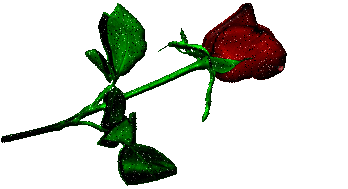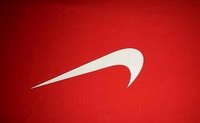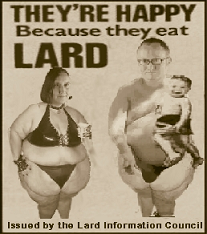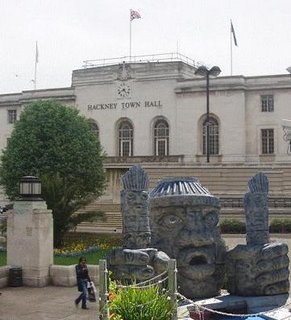
April 2006 - Angus MacNeil MP and ex-MP Martin Bell write to Tony Blair calling for all appointments to the House of Lords to be suspended in the wake of the scandal. Headteacher Des Smith is the first person to be arrested. A former adviser to the body that finds wealthy sponsors for the government's city academies, Des Smith allegedly suggested that backers of a flagship Labour schools policy could expect to be rewarded with honours. His lawyers subsequently state he "categorically denies" the allegations.
August 2006 - Political parties are urged to improve their disclosure of financial support after more than £300,000 of donations is found to have been declared after the deadline. The Electoral Commission says late reporting is "not acceptable".
October 2006 - Electoral Commission research shows that voters want to see donations to political parties capped as part of reforms in the wake of the "Cash-For-Honours" revelations. It's the Tories' turn to be investigated. Bob Edmiston (leading Tory donor and car importer) is reported by the Times to have been questioned under caution. Michael Howard (former Conservative leader) says that he agreed to be interviewed by police investigating the "Cash-For-Honours" affair. He has not been arrested or questioned under caution.
Meanwhile Scotland Yard and Downing Street refuse to comment on reports that Jonathan Powell is to be interviewed under caution. It emerges that virtually all ministers who served in the cabinet in the run-up to the 2005 general election have been contacted and asked to declare formally in writing what they knew about the loans. They included such senior figures as Gordon Brown, John Prescott and Ruth Kelly, but not the PM himself. Alan Milburn (former Health Secretary) also reveals that he has been questioned over "Cash-For-Honours" and it also emerges that Patricia Hewitt has been questioned.
Lord Sainsbury resigns as Science Minister but says his decision is for personal reasons and has nothing to do with the inquiry. John Prescott declares himself satisfied with police conduct as Downing Street rejects reports that No 10 has complained about the handling of the affair.
It also emerges that Labour Party Chair and my secret love Hazel Blears has met Mr Yates "to keep her up to date" with the matter. Lord Goldsmith says he does not expect to be interviewed as he had not been involved in any Labour party fundraising. "I am not going to be involved in the process - with fundraising issues - that they are concerned with, so I can't see why I should be," he says in a less than erudite moment.
Labour complains to the BBC after it is reported that journalists were offered £100 "bounty" payments for stories on the Cash-For-Honours affair. Hewitt has a "brief" interview with the police, talking to them "as a witness".
Hewitt is believed to have faced questioning over donations made to her Constituency Party in Leicester West by curry tycoon Sir Gulam Noon - one of those who later loaned the Party money and was blocked for a peerage. Then, in perhaps the most dramatic moment of the entire affair, Lord Levy threatens to take Blair with him if he is charged.
December 2006 - Downing Street announces that Tony Blair has been questioned by police, but not under caution. Leading venture capitalist Sir Ronald Cohen and Tanzanian businessman Sir Jayantilal (Andy) Keshavji Chande angrily deny being involved in the "Cash-For-Honours" scandal.
MPs on the Constitutional Affairs Committee reveal evidence showing that Lord Goldsmith overruled Attorney General Lord Falconer in refusing to stand aside from the Cash-For-Honours probe.
February 2007 - It emerges that Tony Blair was interviewed by police for a second time on January 26. The PM was questioned for less than an hour by officers, but the police requested a news blackout. We still don't know what Tony did and said during this interview. Ruth Turner is questioned for a third time by police and this time she is released on bail pending further inquiries. Things are now starting to look very serious for Tony Blair and his closest advisers.
March 2007 - The Attorney General obtains an injunction against the BBC to stop it broadcasting a report about the Cash-For-Honours investigation. After details are revealed by Reeta Chakrabarti on News at Ten, the injunction is amended so that the BBC can report that it related to a document written by Ms Turner to Mr Powell about Lord Levy. The Guardian defies the Attorney General to report that detectives were investigating whether Lord Levy urged Ms Turner to shape the evidence she gave to Scotland Yard.
 Visiting Ministers don't exactly help, with Patricia Hewitt revealing in a TV interview that she does not know the name of the Scottish First Minister.
Visiting Ministers don't exactly help, with Patricia Hewitt revealing in a TV interview that she does not know the name of the Scottish First Minister.
The BBC starts to prepare "obituaries" for those most likely to be charged when the papers eventually go to the Director of Public Prosecutions.
April 2007 - Tabloid newspapers print lurid stories about "Cash-For-Honours" complainant Angus MacNeil MP, claiming that he has been involved in a "drunken romp" with two teenage girls. Mr MacNeil claims to have been followed and to have received a series of "suspicious phone calls" to his Barra home. Assistant Commissioner Yates hands over a 216-page file to the Director of Public Prosecutions, the last of 6,300 documents to be passed to the prosecutors. Three people remain on police bail - Lord Levy, Ruth Turner and Sir Christopher Evans.
Question - Who decided two weeks ago that it was "a good sex day to bury bad news"?
The sex romp story filled the front pages and neatly distracted attention away from the SNP lead in the Scottish local election polls and the "Cash-For-Honours" scandal - two stories that all of us in the Labour Party want to see disappear from public attention.
How many votes will Labour regain from the SNP amongst the strict Presbyterians of Scotand?
It does seem oddly coincidental that just before the Scottish local election, the Scottish MP who initiated the "Cash-For-Honours" investigation should find himself photographed after a bedroom "romp" with two 18-year-old girls.
Maybe I am just an old cynic.
Friday, April 20, 2007
Accidents Of Timing
Posted by
Luke Akehurst
at
8:26 pm
![]()
Subscribe to:
Post Comments (Atom)










 I'm Luke Akehurst..... aka. "Luke The Nuke".
I'm Luke Akehurst..... aka. "Luke The Nuke".





1 comment:
One presumes that all this will be allowed to fade away now. One can't imagine that with all of the parties involved having received honours and appointments from Tony that they are now going to rat on him, can one?
Post a Comment